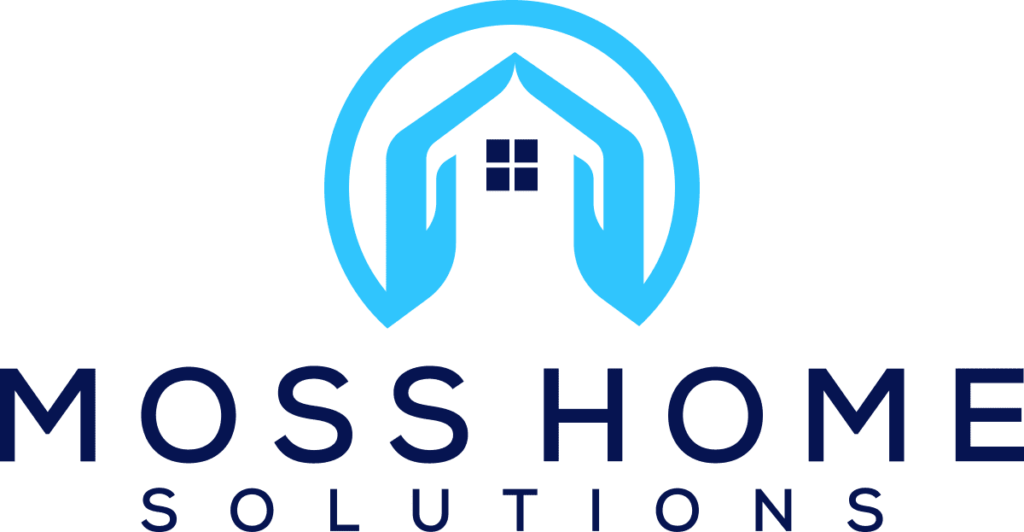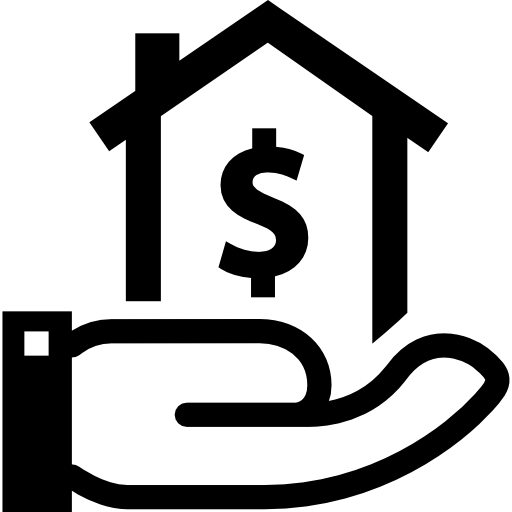Struggling with unpaid medical bills and worried about losing your house?
It’s a scary thought.
The good news? Hospitals usually can’t just take your home. But, there are exceptions. Medical debt can creep up, threatening your homeownership in ways you might not expect.
You’re likely overwhelmed and searching for solutions. We’re here to help you navigate this maze. In this blog, we’ll unravel the complexities of medical debt, legal protections, and whether selling your home might be the key to financial relief.
Key Notes
- Hospitals typically cannot take your house directly for unpaid medical bills.
- Legal actions and liens can force you to sell your home to cover medical debt.
- Proactive financial planning and legal protections can safeguard your home.
- Selling your house for cash can quickly resolve medical debt.
Can a Hospital Take Your House for Unpaid Medical Bills?
The short answer is generally no, but there are exceptions.
Hospitals typically do not directly take your house, but they can take legal action to recover their money, which can lead you to sell your home to recover the medical debt.
When you don’t pay your medical bills, the hospital can sell your debt to a collection agency, which might sue you. If they win, they can obtain a judgment against you, leading to a lien on your property.
How to Protect My House from Medical Debt
You can take steps in proactive financial planning, using legal protections, and maintaining open communication to reduce the risk of losing your home due to medical debt.
Proactive Financial Planning

Maintaining adequate health insurance coverage and building an emergency savings fund are two of the most effective ways to protect your house from medical debt. Here’s how you can do it:
Health Insurance Coverage:
Choosing a plan that offers comprehensive coverage is important, even if the premiums are higher.
Look for plans that cover a wide range of medical services, including preventive care, emergency services, hospitalization, prescription drugs, and specialist visits.
Be aware of the deductibles, co-pays, and out-of-pocket maximums, as these will affect your overall costs. Regularly review your policy to ensure it meets your needs, and consider upgrading if your health situation changes.
Emergency Savings Fund:
An emergency savings fund acts as a financial cushion in times of unexpected medical expenses. Aim to save at least 3–6 months of living expenses.
Start small by setting aside a portion of your monthly income in a high-yield savings account. This fund should be easily accessible but separate from your regular checking account to avoid the temptation to use it for non-emergencies.
Having this buffer can prevent you from falling behind on medical bills and reduce the likelihood of needing to sell your home to cover expenses.
Legal Protections
Legal protections such as homestead exemptions can safeguard a portion of your home’s value from creditors. Here’s what you need to know:
Homestead Exemptions:
A homestead exemption is a legal provision that helps protect the value of your home from creditors and property taxes. The specifics of homestead exemptions vary by state, so it’s crucial to understand the laws in your area.
Generally, these exemptions can protect a certain amount of equity in your home. The homestead exemption in Rhode Island allows you to protect a certain amount of equity in your primary residence from creditors.
As of 2024, this exemption amount is $500,000 for a single person and $1,000,000 for a married couple filing together.
You may need to file a declaration with your local county recorder or assessor’s office to claim this exemption. This protection can prevent the foreclosure of your home due to medical debt.
Other Legal Tools:
In addition to homestead exemptions, consider consulting with a financial advisor or attorney about other legal tools that can protect your assets. One way to clear medical debt is to tap into your home’s equity through a HELOC.
A Home Equity Line of Credit (HELOC) is a flexible form of credit that works similarly to a credit card. It allows homeowners to borrow and repay funds as needed, making it a useful tool for covering unexpected medical bills.
How HELOCs Work
1. Equity Requirement
Most creditors require you to have at least 15-20% equity in your home to qualify for a HELOC.
2. Determining Your Credit Limit
Your credit limit depends on several factors, including:
- Your credit score
- Outstanding debts
- The value of your home
- The amount you owe on your mortgage
3. Borrowing Limits
Once approved, you can borrow up to 85% of your home’s appraised value minus any mortgage balances.
4. Accessing Funds
- After your HELOC is set up, you can withdraw money as needed and repay it monthly.
- Lenders may have minimum or maximum withdrawal requirements.
- You can access funds through various methods, such as online transfers, checks, or a credit card linked to your HELOC account.
5. Eligibility with Bad Credit
- Even with bad credit, you might still qualify for a HELOC to help pay medical bills.
- Better credit scores and financial health will result in more favorable interest rates and terms.
Draw Period and Repayment Period
A HELOC has two main phases: the draw and repayment periods.
| Draw Period | Repayment Period |
|---|---|
| You can withdraw money from your line of credit as needed. You might be required to make only interest payments during this time, although you can also pay down the principal. | After the draw period ends, you enter the repayment period. During this time, you can no longer withdraw money, and you must start making full payments, including both principal and interest, until the loan is paid off. |
| About 10 years | 10 to 20 years, depending on loan terms |
Selling Your House for Cash to Relieve Medical Debt
A cash sale involves selling your home to a buyer who offers to purchase the property outright with cash, without the need for financing or mortgage approval. Cash buyers are typically investors, flippers, or individuals with access to liquid funds.
Benefits of Cash Sales for Medical Debt
Selling your home for cash has several advantages for anyone grappling with medical debt:
| Quick Sale | The sale closes faster than traditional sales, allowing you to access funds quickly to address immediate financial needs, such as medical bills or debt repayment. |
| Avoidance of Financing Contingencies | Cash buyers do not require mortgage financing, eliminating the risk of deals falling through due to financing issues. This provides certainty and peace of mind during the sale process. |
| As-Is Condition | Buyers are often willing to purchase properties in their current condition, eliminating the need for costly repairs or renovations. This can be particularly beneficial if you may not have the resources to invest in home improvements due to your medical bills. |
| Simple Process | The process involves fewer parties and less paperwork, simplifying the transaction and reducing the time and effort required to complete the sale. |
Other Listing Options
- Real Estate Agent: Working with a reputable real estate agent can simplify the selling process. Agents have expertise in pricing, marketing, and negotiating, helping you confidently navigate each step.
- For Sale By Owner (FSBO): Selling your home on your own can save money on agent commissions, but it requires significant time and effort. You’ll be responsible for pricing, marketing, showing the property, and negotiating with buyers.
Post-Sale Financial Planning
After selling your home, you must manage the proceeds wisely to achieve your financial goals.
- Debt Repayment: Prioritize paying off medical debt and other outstanding debts to improve your financial situation and reduce stress.
- Investing Remaining Funds: Consider investing the remaining proceeds to generate additional income and secure your financial future. Consult with a financial advisor to explore options that align with your risk tolerance and long-term objectives.
- Creating a Budget: Develop a comprehensive budget that accounts for your ongoing expenses, including housing, healthcare, and other necessities. This will help you maintain financial stability and make informed decisions about future housing options.
Frequently Asked Questions
What are the best strategies for valuing and pricing my house for sale?
You can conduct a Comparative Market Analysis (CMA), hire an appraiser, and consider listing options such as real estate agents, FSBO, or quick sale companies.
What are the alternative housing options available to people facing medical debt?
Alternative options include renting, downsizing to a smaller home, or exploring assisted living or long-term care facilities.
How does medical debt impact my credit score?
Medical debt can negatively affect credit scores, but strategies like disputing inaccuracies, negotiating with providers, and monitoring credit reports can help minimize the damage.
Conclusion
Selling your house due to medical debt is a big decision, but with the right strategies and careful planning, you can effectively work through this challenging situation.
Remember to explore all financial options, protect your home from potential liens, and maximize your home’s value if you decide to sell. By managing the proceeds wisely and considering your future housing needs, you can mitigate the financial impact of medical debt and move forward with greater financial stability.
We’ll help you sell your house quickly to pay off your medical debt. Contact us today for an instant quote.





